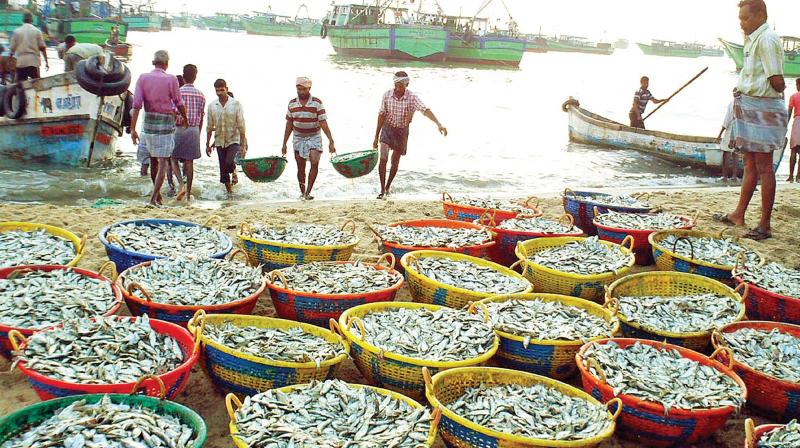Easing non-tariff measures can fuel growth in marine trade in Global South: UN

Chennai: Marine trade among the countries of the Global South or the developing nations has doubled to $39 billion in a decade. Harmonizing and reducing non-tariff measures can help further growth among them, finds the UN's trade body.
Global trade in marine fisheries and aquaculture offers big opportunities for sustainable and inclusive economic growth while advancing key Sustainable Development Goals (SDGs), particularly improving food security and eliminating hunger and protecting life below water.
South-South trade – commerce between developing countries – in various fisheries sectors, including marine fisheries, aquaculture, fish processing and fishing vessels, has more than doubled from around $19 billion in 2012 to $39 billion in 2022.
Chile, China, Ecuador, India, Peru, Thailand and Vietnam are leading exporters among developing countries, which accounted for 46 per cent of global seafood exports in 2022, up from 42 per cent in 2012. Notably, their share of the higher-value processed segment is higher than that of unprocessed exports, at 53 per cent compared with 40 per cent earlier.
This growth in South-South trade in fisheries and aquaculture contrasts with traditional trade patterns, in which developing countries primarily export to advanced markets.
Despite the promising growth, the marine fisheries and aquaculture sector faces several challenges. Overfishing, harmful subsidies and climate change pose significant threats to sustainability.
Overfished stocks have tripled since 1974, with over one third of the world’s assessed fisheries currently overfished. Climate change exacerbates these issues, affecting sea temperatures and ecosystems, threatening both the environment and the livelihoods dependent on these resources.
Trade barriers, particularly non-tariff measures (NTMs) used to control the amount and types of products entering their markets, can hinder growth.
The Global System of Trade Preferences among Developing Countries (GSTP) is an agreement among developing countries to promote trade by offering preferential treatment in tariffs and other trade barriers.
Despite lower tariffs among GSTP members, the prevalence of NTMs continues to pose obstacles to trade.
Sanitary and phytosanitary measures (SPS) and technical barriers to trade (TBT) significantly increase compliance costs and restrict market access. They account for about 65 per cent of all NTMs faced by exporters.
Harmonizing and reducing NTMs through the GSTP can make it easier for developing countries to access regional and global markets, thus helping them integrate into global value chains and preparing their businesses for international competition.

